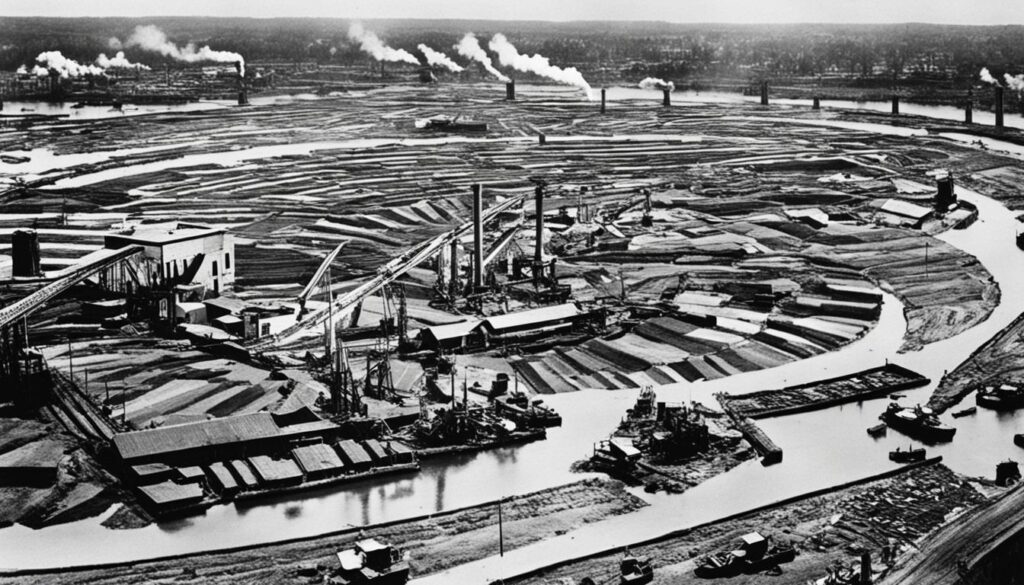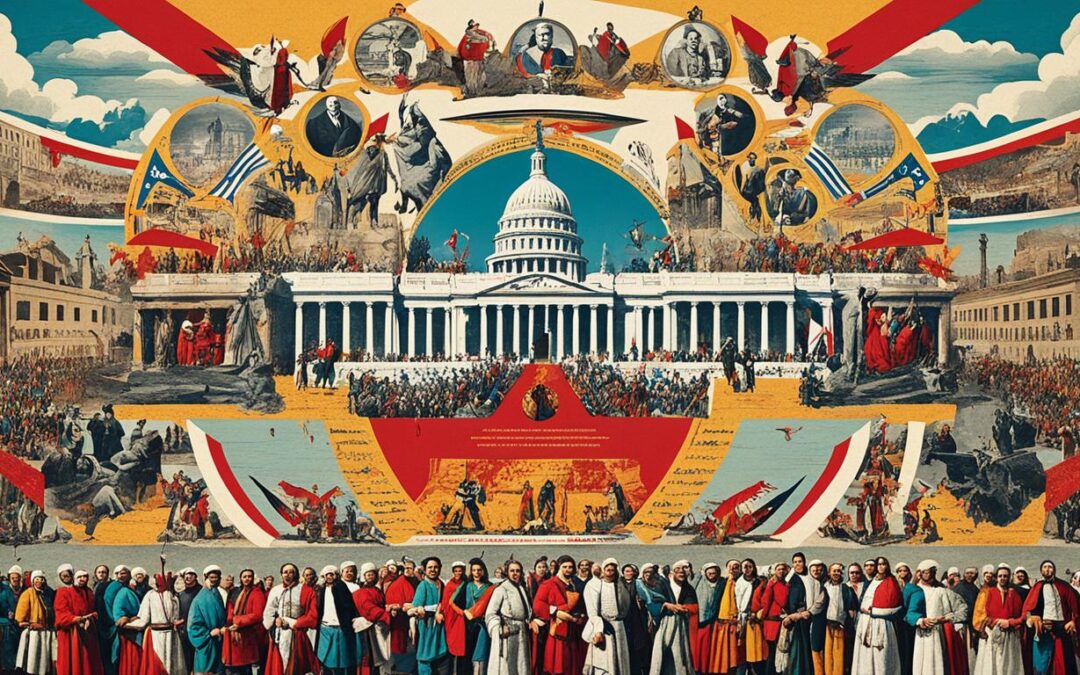Historical events have a profound impact on shaping the cultural landscape of today’s society. The actions and decisions of our ancestors have sculpted the world we live in today. From ancient civilizations to major revolutions, colonization, religious influences, scientific discoveries, and more, each historical event has left its mark on our values, beliefs, traditions, and social structures.
In this article, we will explore the extent to which these historical events have shaped our culture and society, delving into the influence of ancient civilizations, the impact of major revolutions, the lasting effects of colonization, and the role of religion in shaping society. By understanding the connections between past events and the present, we can gain a deeper appreciation for the cultural mosaic that surrounds us.
The Influence Of Ancient Civilizations
Ancient civilizations have had a significant influence on shaping the cultural landscape of today’s society. The architectural marvels of civilizations like the Greeks and Egyptians continue to inspire and shape contemporary architecture.
The mythological tales from these ancient civilizations also resonate in popular culture, capturing our collective imagination. These tales of gods and goddesses, heroes and monsters, offer timeless lessons and insights into the human condition. They have inspired countless works of art, literature, and films, serving as a testament to their enduring cultural influence.
Ancient civilizations stand as a testament to the boundless potential of human creativity, innovation, and exploration. Their achievements in various fields such as science, mathematics, and philosophy remind us of the limitless capacity of the human mind. These civilizations were able to push the boundaries of knowledge, challenging existing beliefs and paving the way for new ideas.
The Architectural Marvels of Ancient Civilizations
| Ancient Civilization | Architectural Marvel |
|---|---|
| Egyptians | The Great Pyramids of Giza |
| Greeks | The Parthenon |
| Romans | The Colosseum |
Mythological Tales and their Cultural Impact
The mythological tales of ancient civilizations have become ingrained in our cultural fabric. They have been passed down through generations, preserving the wisdom, beliefs, and values of these ancient societies. These tales continue to inspire modern storytelling, influencing literature, films, and even video games.
Unlocking Human Potential through Ancient Civilizations
The accomplishments of ancient civilizations serve as a reminder of the untapped potential within each of us. They encourage us to push the boundaries, pursue knowledge, and strive for greatness. The lessons learned from these civilizations can fuel our own personal and collective growth, offering insights into our capabilities and the possibilities that lie ahead.
The Impact Of Major Revolutions
Major revolutions have had a transformative impact on the cultural landscape of today’s society. These revolutionary movements, such as the Spanish Revolution and the Russian Revolution, have influenced various aspects of our lives.
Revolutionary art has been used as a form of expression and resistance, shaping cultural norms and inspiring generations. Artists like Pablo Picasso and Diego Rivera utilized their artistry to depict the struggles and aspirations of the working class, leveraging their creativity as a catalyst for social change.
One notable example of revolutionary art is Picasso’s famous painting, Guernica, which portrays the horrors of war and the human suffering caused by violence. This powerful artwork not only symbolizes the impact of the Spanish Civil War on society but also serves as a timeless reminder of the devastating consequences of conflict.
Revolutionary movements have not only influenced the artistic sphere but have also brought about significant shifts in economic systems, social reforms, and the political landscape. The French Revolution, for instance, led to the abolishment of the monarchy and the rise of republican governments across Europe.
This political upheaval laid the groundwork for the modern democratic principles and institutions that govern societies today. Furthermore, revolutions have prompted economic changes, such as the transition from feudalism to capitalism, laying the foundation for industrialization and economic development.
The Economic Impact of Revolutions
 One way major revolutions have shaped societies is through their profound economic impact. The aftermath of revolutions often includes significant disruptions to existing economic systems, leading to both short-term and long-term consequences.
One way major revolutions have shaped societies is through their profound economic impact. The aftermath of revolutions often includes significant disruptions to existing economic systems, leading to both short-term and long-term consequences.
| Revolution | Economic Impact |
|---|---|
| The Industrial Revolution | Transformed societies with the advent of mechanization, mass production, and urbanization. |
| The Russian Revolution | Overturned the Tsarist autocracy, leading to the establishment of a socialist state and state-controlled economies. |
| The Chinese Revolution | Shifted China from a feudal agricultural society to a communist state with a planned economy. |
These examples illustrate how major revolutions have reshaped economic systems, challenging existing power structures and paving the way for new socioeconomic paradigms.
Social Reforms and Political Landscape
Revolutionary movements have also been catalysts for social reforms and changes in the political landscape. The American Revolution, for example, led to the establishment of a new nation founded on principles of freedom and democracy.
Similarly, the Mexican Revolution fought for agrarian reform, worker rights, and greater political representation for the disenfranchised. These social reforms not only addressed systemic injustices but also paved the way for more inclusive and equitable societies.
Furthermore, revolutions have reshaped the political landscape by challenging existing power structures and hierarchies. They have given rise to new political ideologies and movements, such as communism, socialism, and nationalism, which have greatly influenced national policies and international relations.
In summary, major revolutions have had a profound impact on the cultural landscape of today’s society. From revolutionary art to economic, social, and political transformations, the echoes of these movements continue to shape our world.
Colonization And Its Lasting Effects
Colonization has had a lasting impact on the cultural landscape of today’s society. The legacy of imperialism and the economic exploitation of colonized regions have resulted in postcolonial nations grappling with internal conflicts and political instability.
The economic exploitation of colonized regions has left a deep mark, perpetuating economic inequalities that continue to shape contemporary societies. The wealth and resources of these regions were often extracted for the benefit of the colonizers, leaving the local populations impoverished and dependent. This ongoing economic exploitation has hindered the development and progress of postcolonial nations, perpetuating cycles of poverty and limited opportunities for growth.
Furthermore, colonization has had a profound cultural impact, often resulting in the marginalization and erosion of indigenous cultures. The spread of European languages, religions, and customs in colonized regions has often overshadowed and suppressed local traditions and practices. This cultural assimilation has led to identity crises and the loss of cultural heritage among indigenous populations.
The Struggle for Cultural Preservation
Despite the cultural impact of colonization, many postcolonial nations are actively working towards cultural preservation and revitalization. Efforts are being made to reclaim and celebrate indigenous languages, arts, and traditions. These initiatives acknowledge and honor the rich cultural diversity that existed prior to colonization, fostering a sense of pride among communities and promoting understanding and appreciation among different cultures.
However, the enduring consequences of colonization continue to pose challenges. Internal conflicts and political instability often stem from a complex web of historical grievances and power struggles that were rooted in the colonial past. The divide and conquer tactics employed by colonizers have left postcolonial nations grappling with ethnic tensions, territorial disputes, and social upheavals. This internal conflict hampers progress and unity, hindering the path towards peace and prosperity.
In order to fully address the long-lasting effects of colonization, it is crucial to recognize and examine the deep-rooted systems and structures that perpetuate inequality and marginalization. By understanding and acknowledging the historical context, societies can work towards healing and reconciliation, promoting inclusivity and social justice.
The Role Of Religion In Shaping Society
Religion has a profound impact on shaping the cultural landscape of today’s society. It is visible in the magnificent physical structures of temples, churches, and mosques that dot our cities and towns, serving as symbols of faith and reverence. These places of worship not only provide a sense of spiritual connection but also contribute to the architectural diversity and visual beauty of our communities.
Moreover, religion influences our moral codes and cultural practices, guiding our behavior and shaping our values. From teachings on kindness and compassion to principles of honesty and integrity, religious beliefs provide the foundation for human ethics and contribute to the formation of social norms. They help cultivate a sense of community, fostering care and support for one another, and encouraging us to live in harmony.
However, religion, like any human institution, is not immune to negative influences. Throughout history, we have seen instances of religious persecution and intolerance that have caused immense suffering and division. These conflicts, fueled by ideological differences, have stained the pages of our past, reminding us of the dangers of fanaticism and exclusivity.
Nevertheless, religion has also been a catalyst for positive change and inspired spiritual revivals that have transformed societies. It has sparked movements for social justice, advocating for equal rights, and challenging systemic inequalities. Spiritual leaders and their teachings have motivated individuals to strive for a more compassionate, just, and inclusive world.
As we navigate the complexities of religious influence, it is important to recognize the power and potential of faith in shaping our understanding of the world and our interactions with others. Religion stands as an integral part of our cultural fabric, guiding our beliefs, and fostering a sense of belonging. By embracing its positive aspects and promoting respect and tolerance, we can harness the transformative power of religion to forge a more harmonious and inclusive society.

